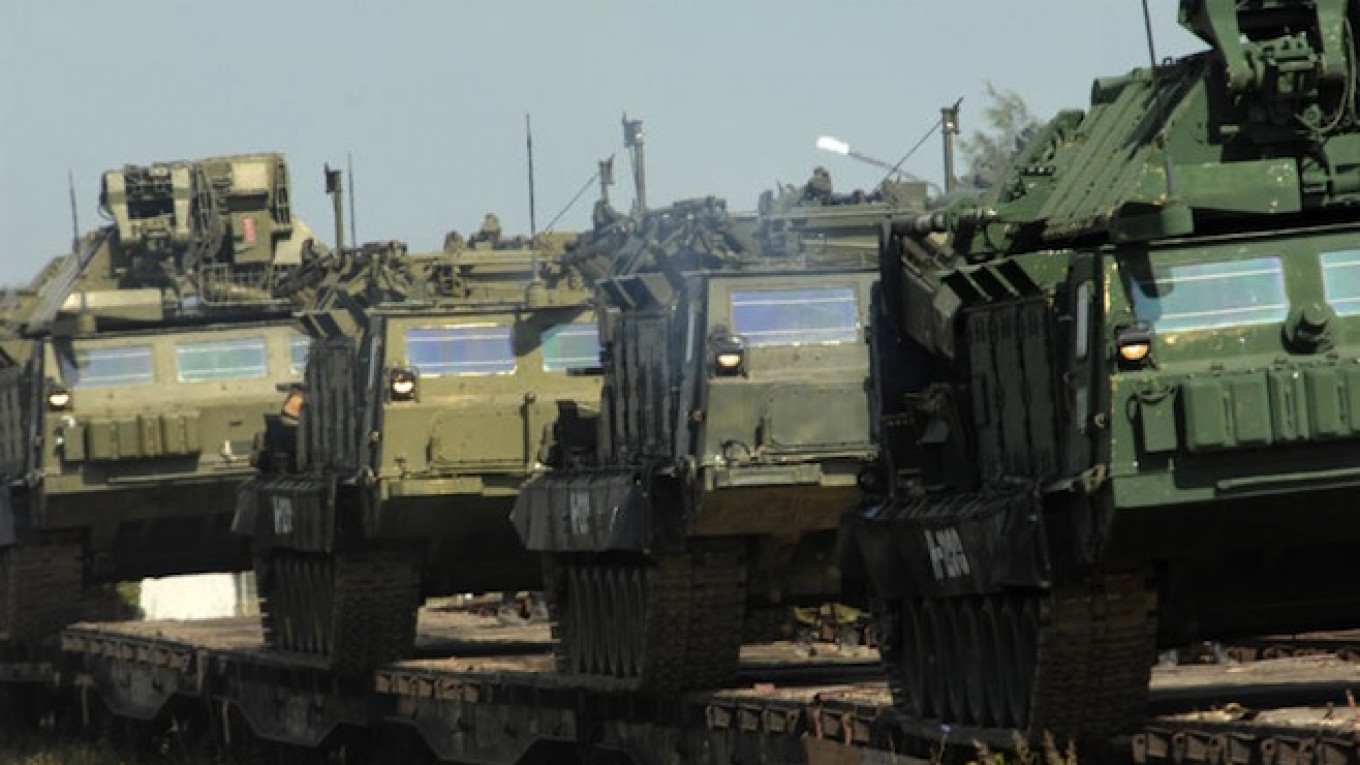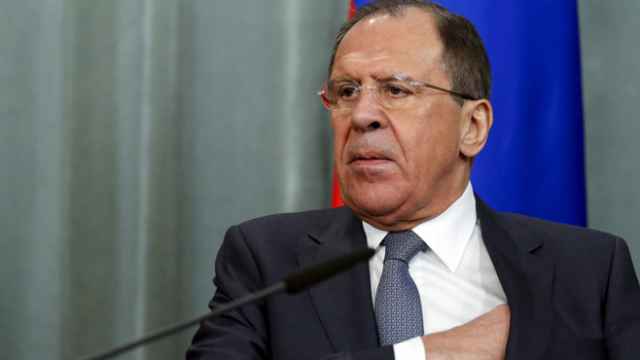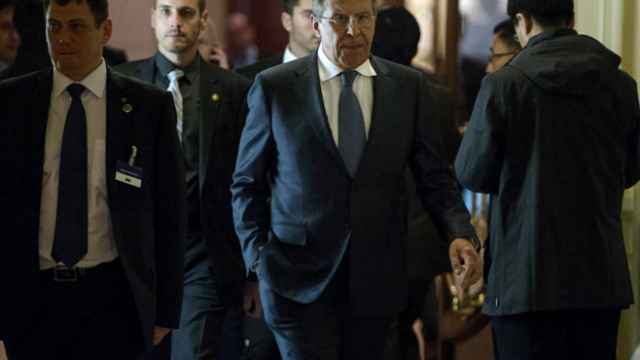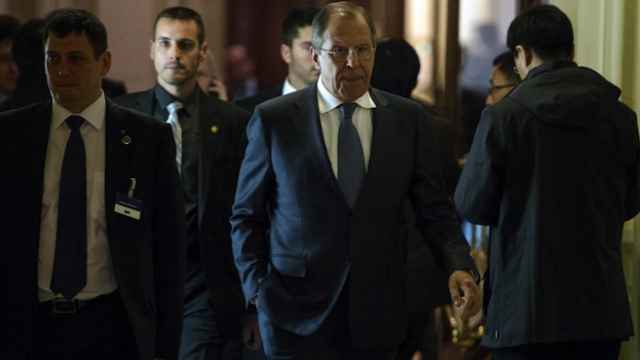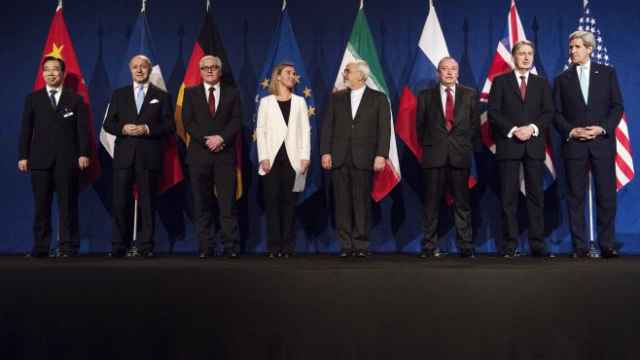Russian President Vladimir Putin on Monday paved the way for long-overdue missile system deliveries to Iran and Moscow started an oil-for-goods swap with Tehran, showing the Kremlin's determination to boost economic ties with the Islamic Republic.
The moves come after world powers, including Russia, reached an interim deal with Iran on curbing its nuclear program and signal that Moscow may have a head-start in the race to benefit from an eventual lifting of sanctions on Tehran.
The Kremlin said Putin signed a decree lifting Russia's own ban on the delivery of S-300 anti-missile rocket system to Iran, removing a major irritant between the two after Moscow cancelled a corresponding contract in 2010 under pressure from the West.
A senior government official said separately that Russia has started supplying grain, equipment and construction materials to Iran in exchange for crude oil under a barter deal.
Sources said more than a year ago that a deal worth up to $20 billion was being discussed with Tehran and would involve Russia buying up to 500,000 barrels of Iranian oil a day in exchange for Russian equipment and goods.
Officials from the two countries have issued contradictory statements since then on whether a barter deal has been signed, but Deputy Foreign Minister Sergei Ryabkov indicated one was already being implemented.
"I wanted to draw your attention to the rolling out of the oil-for-goods deal, which is on a very significant scale," Ryabkov told a briefing with members of the upper house of parliament on the talks with Iran.
"In exchange for Iranian crude oil supplies, we are delivering certain products. This is not banned or limited under the current sanctions regime."
He declined to give any further details. Russia's Agriculture Ministry declined comment and the Energy Ministry did not immediately respond to request for comment. There was no comment from Iran.
Russia hopes to reap economic and trade benefits if a final deal is concluded to build on the framework agreement reached in the Swiss city of Lausanne between Iran and six world powers — Russia, the United States, France, Britain, Germany and China.
The sides have until the end of June to work out a detailed technical agreement under which Iran would curb its nuclear program and allow international control in exchange for a lifting of economic sanctions. Tehran has denied that its nuclear activities are designed at developing atomic weapons.
Two to Tango
Iran is the third largest buyer of Russian wheat, and Moscow and Tehran have been discussing the barter deal for more than a year.
Russia's state-controlled grain trader in September lowered the value of its potential grain supplies to Iran under the barter to $500 million annually. In December, Iran's oil minister denied Tehran and Moscow were close to a deal.
Ryabkov also suggested Russia had high hopes that its steady support for Iran would pay off in energy cooperation once international sanctions against the Islamic republic are lifted.
"It takes two to tango. We are ready to provide our services and I am sure they will be pretty advantageous compared to other countries," he said. "We never gave up on Iran in a difficult situation... Both for oil and gas, I think the prospects for our cooperation should not be underestimated."
He also reiterated Moscow's line that an arms embargo on Iran should be lifted once a final nuclear deal is sealed.
One upper house lawmaker asked Ryabkov whether lifting sanctions on Tehran could undermine Russia's position on global energy markets, including as the main gas supplier to Europe.
"I am not confident as yet that the Iranian side would be ready to carry out supplies of natural gas from its fields quickly and in large quantities to Europe. This requires infrastructure that is difficult to build," he said.
A Message from The Moscow Times:
Dear readers,
We are facing unprecedented challenges. Russia's Prosecutor General's Office has designated The Moscow Times as an "undesirable" organization, criminalizing our work and putting our staff at risk of prosecution. This follows our earlier unjust labeling as a "foreign agent."
These actions are direct attempts to silence independent journalism in Russia. The authorities claim our work "discredits the decisions of the Russian leadership." We see things differently: we strive to provide accurate, unbiased reporting on Russia.
We, the journalists of The Moscow Times, refuse to be silenced. But to continue our work, we need your help.
Your support, no matter how small, makes a world of difference. If you can, please support us monthly starting from just $2. It's quick to set up, and every contribution makes a significant impact.
By supporting The Moscow Times, you're defending open, independent journalism in the face of repression. Thank you for standing with us.
Remind me later.


